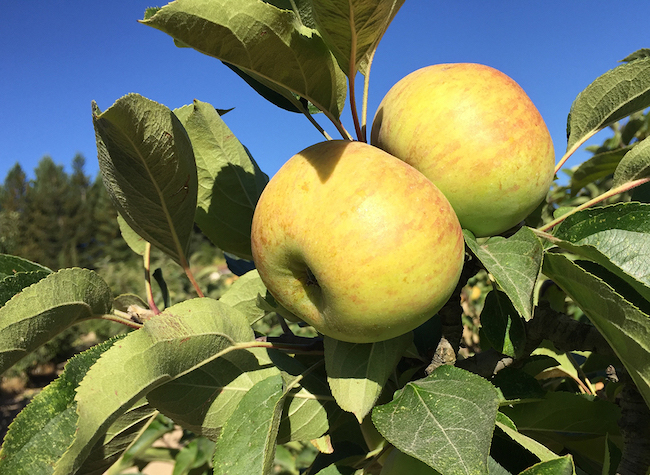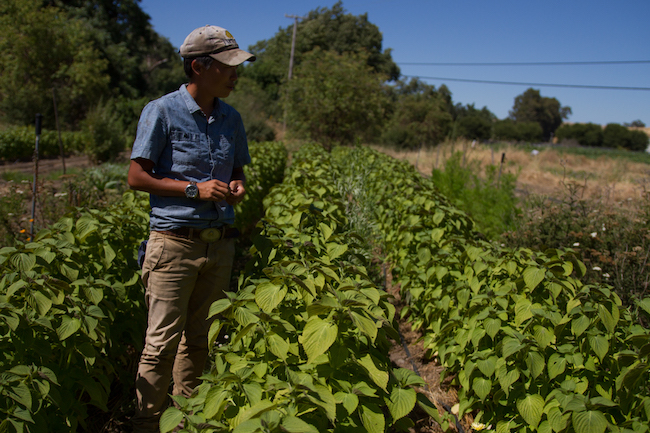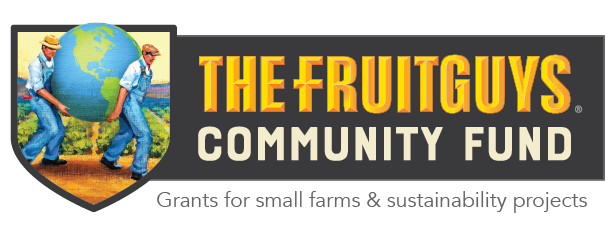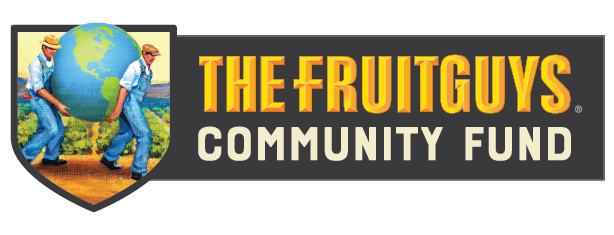
Heirloom crops are those varieties of vegetables, fruit, and livestock that existed before commercial varieties. They were the crops passed down from one generation to the next, saved each year for their flavor, hardiness, and productivity. While many have been lost to competition with commercial varieties, heirlooms still hold a certain appeal. Unlike newer crops, heirlooms have never been bred to be easy to ship. They’re best harvested fresh at home or enjoyed from a local market. When farmers and gardeners save heritage tomato seeds, propagated apple trees, or selected livestock breeds, their flavors are one of the most important features. Preserving heirloom varieties is one of the essential practices listed in our Sustainable Farming Manifesto. We encourage our grantees and applicants to purchase, save, and share heirloom varieties.
Why Heirlooms?
Today the flavor and history of heirloom crops have brought about a resurgence in their use. It’s hard not to fall for crops with rich stories, delicious flavors, and names like Pungo Creek Butcher Dent Corn, Bourbon Red Turkeys, or White Horse Apples, but heirlooms deserve a place on the table for other reasons too.
Heirloom vegetables are always open-pollinated varieties. For farmers and gardeners, this means that unless they’re crossing a vegetable with another variety, they can save seed from their own plants year after year and count on them to stay to true to the variety. This helps small farms save money and allows them to select seed each year and adapt plants to their region.
Heritage livestock can also be beneficial for small farms. Many modern breeds like Broad Breasted White Turkey cannot propagate on their own and require artificial insemination. This is not the case for heritage breeds, allowing even small-scale farmers and homesteaders to maintain their own flocks or herds of livestock.

Farmer Kristyn Leach of Namu Farm in Winters, CA.
Edible Memories
Preserving heirlooms also preserves culture. Unlike modern varieties, heirlooms are deeply connected to the people who grow them. Through most of human history, heirlooms have become an important and essential part of different cultures’ customs and diet. A great example of heirloom preservation is seen in the work of Kristyn Leach of Namu Farm, one of 2018’s Community Fund grantees. Kristyn focuses on saving and distributing heritage varieties of Asian vegetable crops. You can learn more about her efforts here.
Heirloom preservation also protects genetic diversity. Consider the apple. Even in large grocery stores, there’s often no more than 10 types of apple for sale, but in the mid-1800s there were thousands of apple varieties being grown in the U.S. Many of those apples and other plant and livestock varieties have gone extinct. When that happens, we lose the flavor and unique traits of those varieties. Some of those lost plants may have been pest-resistant cabbages, cold-hardy cherries, or disease-resistant tomatoes. The varieties saved today could be valuable in the future.
Every year, The FruitGuys also supports the preservation of heirlooms by partnering with Slow Food Russian River to sell Gravenstein Apple Boxes. These delicious heirloom apples are grown by farmers in Sonoma County. This year, 16% of all proceeds will be donated back to these farmers to continue their work in preserving this amazing variety. To learn more about how you can help preserve heirloom crops visit Slow Food USA: Ark of Taste.




